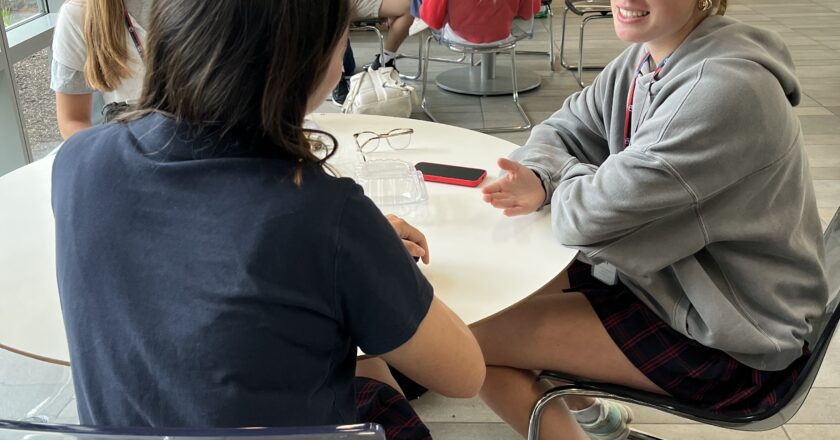Any student athlete who wants to continue their sport at the college level has probably heard of the NCAA. The National Collegiate Athletic Association “supports student athletes and their families.” They award over $3.5 million in athletic scholarships a year. There are three NCAA divisions, and the NCAA oversees recruiting, championships, rules and policies for athletes and sports in each division.
The NCAA has different rules for recruited athletes in each division. There are rules about eligibility, including academic requirements in each division that must be met in order to play. There are also rules regarding timing and when college coaches can contact high school athletes about playing college sports; furthermore, quiet and dead periods where no contact by coaches is allowed, are common.
The recruitment process is as follows: an NCAA governs official visits a team, and then the athlete signs a a National Letter of Intent. This ends the recruitment process and commits the athlete to a team.
Brendan Hodgens ‘24 will dive at Georgetown University, a D1 diving team, in the fall. Hodgens committed to Georgetown early in his high school career.
“The majority of my college search process took place in my junior year – calling and emailing coaches, visiting schools,” Hodgens said. “I committed to Georgetown a little before the first round of college apps were due and was lucky enough to fill out only one application.”
Hodgens said that GA’s strong academics helped him be the best student he could be, which opened a lot of doors in the recruiting process.
“My college counselor was Mr. Evans, and he did an awesome job helping me understand the college admissions side of the recruiting process,” Hodgens said. “He was helpful whenever I needed to craft emails, check in on where I was with different schools, and he guided me in the right direction whenever I was overwhelmed in the process.”
Gavin Fountain ‘24 also said that GA College Admissions were a huge help in reaching his goal of throwing in college.
“Mr. Hamilton was so supportive, and having a support system made me comfortable enough to look at all aspects of the college admissions and recruitment process,” Fountain said. “It was nice to have someone there who didn’t shoot my opinions down and would just listen and help me figure out what was best for me.”
Fountain will compete in track and field next year outside of the US, at Rome City Institute. Even though he did not go through the NCAA for college recruiting, Fountain agrees that competing within the NCAA has gotten more competitive and the NCAA has helped college athletes with the addition of more scholarships.
Fountain shared his love for the GA community, and emphasizes it has pushed him and helped him find a love for sports that he wouldn’t have otherwise attempted, like shot put.
“Mr. Moll brought me up within the sport and I felt safe to try it out,”Fountain said.

